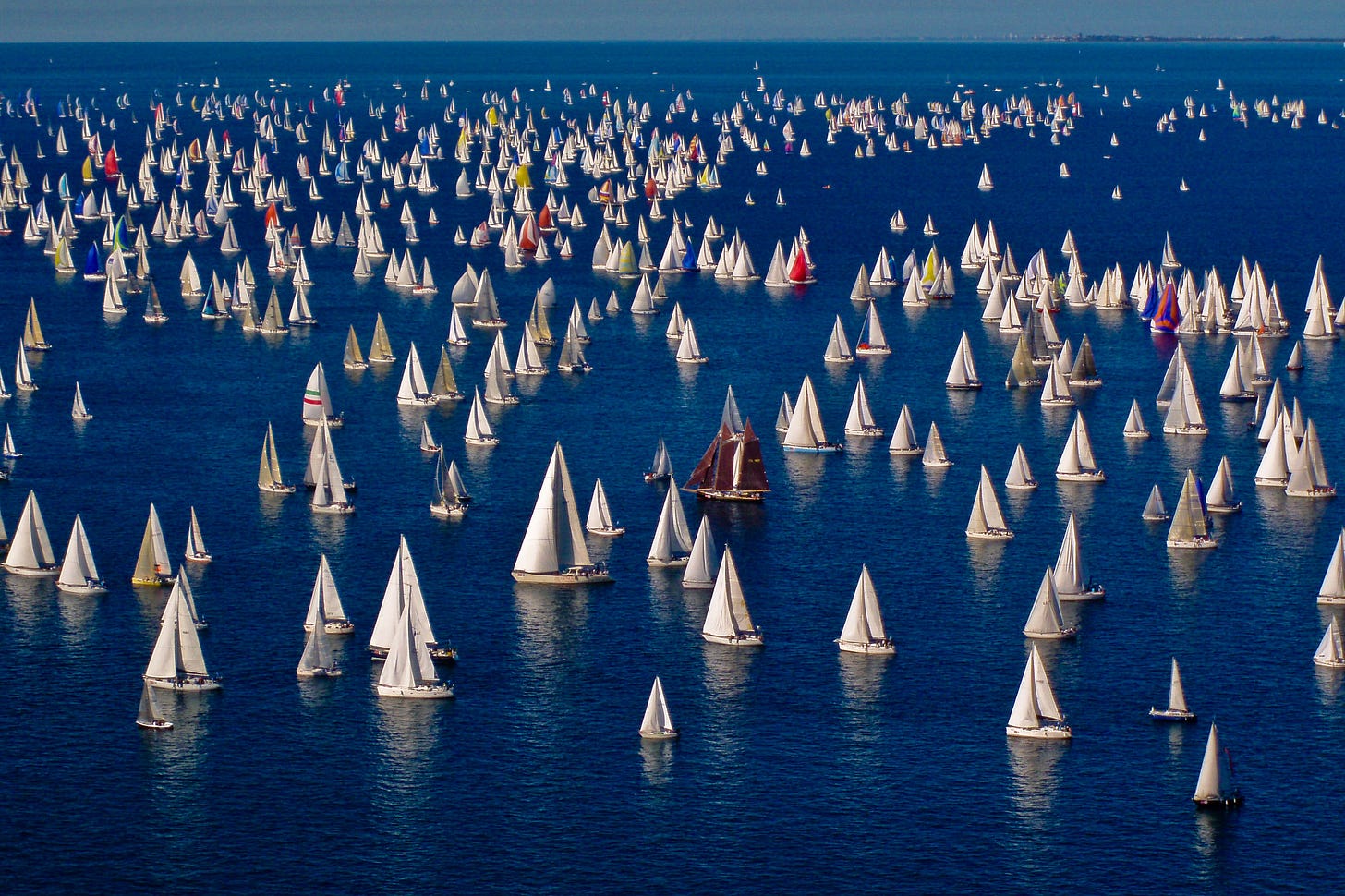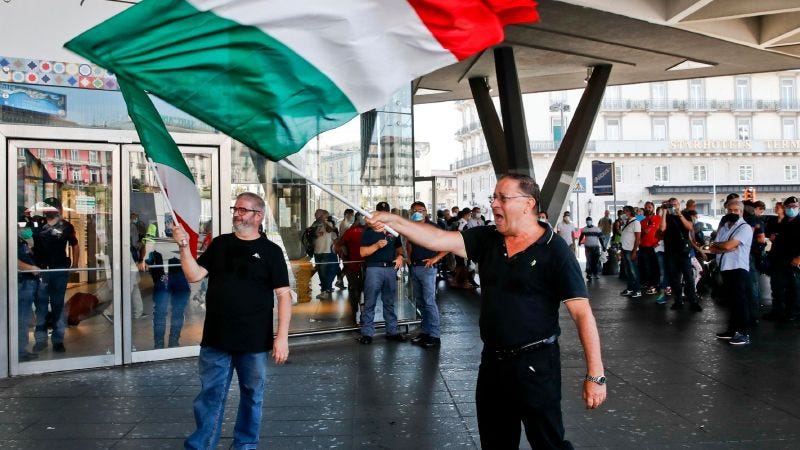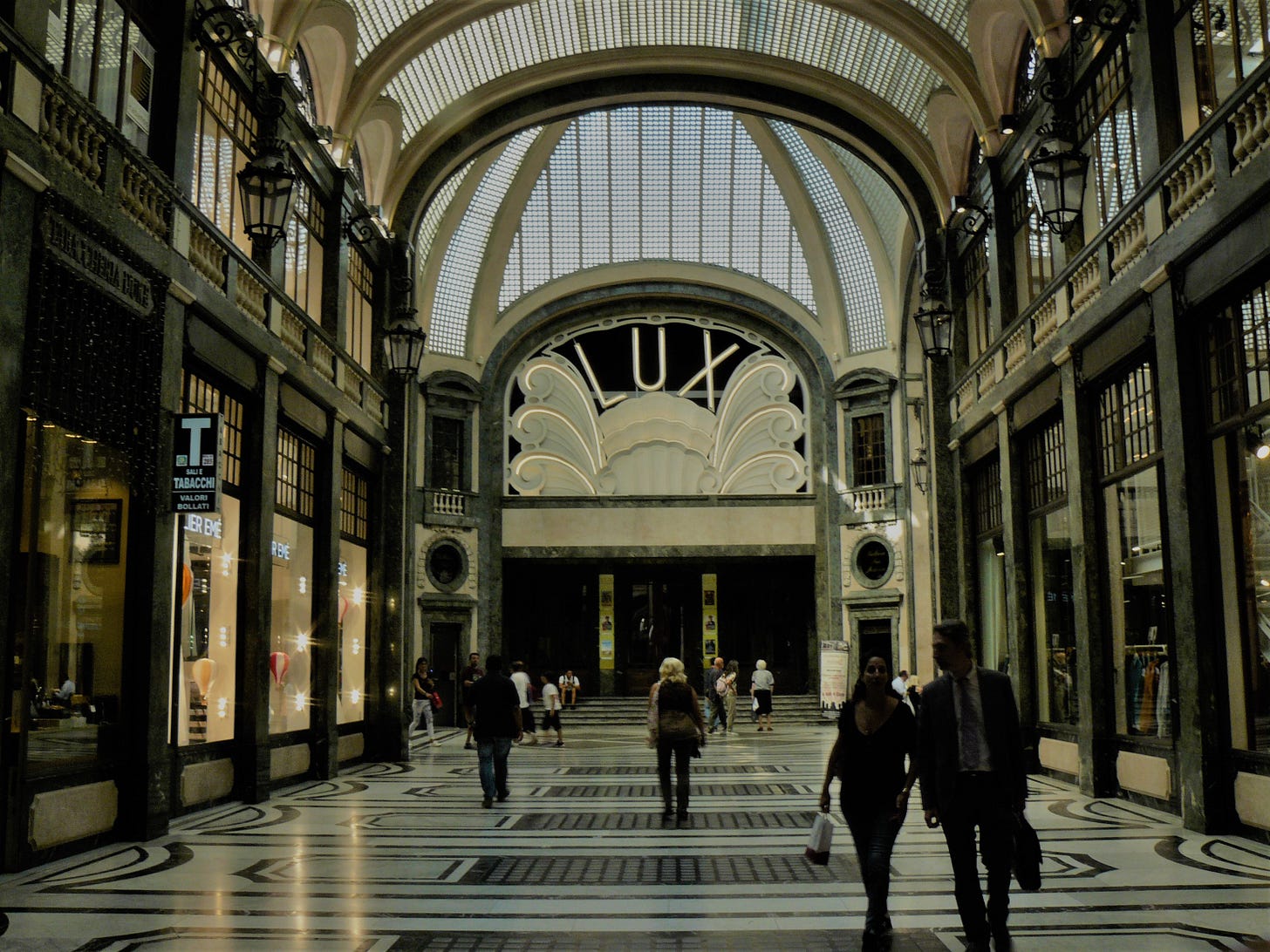Hi everyone, I’m back after a refreshing and eye opening trip around Friuli-Venezia-Giulia. Italy’s extreme north east has a reputation for being rather dull and austere. It turns out, though, that in August at least Trieste in particular is a glowing, bustling, warm city that feels more like Croatia than the nearby Alpine borderlands. It’s also eminently visitable. The tourist office is well-organised and has gone to great lengths to frame the city in the best possible light. The official app includes a wonderful 5 hour (!) literary walking tour which takes the visitor to cafes once frequented by James Joyce and Italo Svevo, but also, more interestingly, to the haunts of lesser-known local writers like Umberto Saba, who founded an important antiquarian bookshop there, and the drinking circles of Slovenian anti-fascists like Srečko Kosovel who gathered in the city at the start of the last century. Trieste is also home to some stunning religious sites including a Serbian Orthodox Church and a huge synagogue. The food is a fascinating mix of Italian and Eastern European fare with seafood pasta and risotto sitting alongside ajvar and cevapi, dobos and rigójancsi on the menus in the local osterie. If you’re thinking of visiting - which in case you haven’t got it by now I absolutely think you should - I recommend this succinct and enjoyable itinerary by Mitja Gialuz which served me very well indeed.

Things are heating-up on the politics front. While I spent most of my holiday trying to unplug from the news I couldn’t help but note the abundance of local election posters plastered all over the walls in Trieste. The buzz is understandable. With ballots due to take place in all the major cities - Milan, Turin, Rome and Naples included - these elections are genuinely a big deal. Generally speaking, it looks like the centre-left will consolidate their strongholds, notably Bologna, and that the conservative and far right will make gains elsewhere. There are a few more interesting contests to keep an eye on though: in Rome, for example, Virginia Raggi, of the Five Star Movement, looks almost certain to lose her position as mayor. As a result, it’s now essentially a two horse race between Roberto Gualtieri, an ex-socialist, pro-EU integrationist with a background in Gramscian theory, and Enrico Michetti, a conservative lawyer and regular guest on alt-right radio shows who has repeatedly downplayed the dangers of Covid-19. Polls don’t open until 3 October, so there’s still plenty of time to get to know the candidates and their proposed policies before then. I’ll be writing something longer soon to that end, but in the meantime the best overview I’ve encountered is a podcast by Domani: “Cominciamo a parlare di amministrative” [Italian only].

Italy’s vaccination campaign is progressing well. Based on current numbers the government is on-track to have jabbed 80% percent of the population by 24 September. The vaccine passport, though, the so-called ‘green pass’, is proving more controversial. Newspapers this week have been filled with stories of protesters attacking journalists, politicians and health workers in outpourings of rage against the measure. While there have been some unpleasant violent incidents, the antagonists are poorly organised. For example: yesterday #nogreenpass activists announced they were going to block train lines across country and bring the national infrastructure to a halt. In the end, just 30 people turned up at Roma Termini station, 12 appeared in Genoa and two - yes two - individuals took to the streets of Naples wielding tricolore flags. You’ve got to laugh. But it’s important to keep a few other things in mind. Too many people, for example, still incorrectly lump the no-green pass and no-vax protesters together (when the grievances and arguments are, obviously, quite different.) Likewise, with 41,000 Italians currently signed up to a Telegram chat called “no health dictatorship,” it’s obvious that parties like the Lega and Fratelli d’Italia are going to stoke the fires of confusion for their own benefit. Ridicule and moralising will hardly be enough to stop them.

Arts and culture: the grey areas
Time is almost running out to catch what, by most accounts, sounds like a great exhibition at Rome’s MAXXI museum. ‘Bigger than Myself: Heroic Voices from Ex-Yugoslavia’ brings together the work of 60 artists from Bosnia & Herzegovina, Croatia, Macedonia, Montenegro, Kosovo, Serbia and Slovenia who are using their craft to reflect on the legacy of communism. According to the blurb, the exhibition aims to draw attention to the positive elements of the failed socialist experiment (such as free healthcare, cheap housing, and social solidarity) in light of the nationalist essentialism, christian fundamentalism and neoliberalism that have taken root in the region since the 1990s. Balkan politics is anything but black and white; and art is surely one of the best vehicles through which to explore the grey areas and uncomfortable truths we so often ignore. The show runs until 12 September, so there’s still time to catch it if you’re interested. If you can’t get to Rome, though, this piece over at Art Review by Ana Vukadin is a neat guide to the exhibition, and I think it offers a lucid analysis of the underlying provocation too.
The Venice film festival kicked off to much fanfare yesterday, and I plan on covering it in detail next week. In the meantime, though, I want to flag a more modest initiative: the Turin Underground CineFest, which is dedicated to international documentaries and indie films, is also starting-up today. If you happen to be in the Piedmontese capital you can head over to l'Ambrosio Cinecafé and il CineTeatro Baretti between 2-9 September to enjoy dozens of screenings, and discussions with directors, actors and so on, all free of charge. If like me, you won’t be in the city, the good news is that the whole event will streamed on demand via the festival’s website! Head over to EventBright to register for the full pass: minimum donation 7 EUR. There are films in a ton of different languages, as you can imagine, including English (though the programme, which you can view here, is Italian only.) That’s my weekend sorted anyway.
Recipe of the week: pappa al pomodoro
In the spirit of homecoming I thought I’d cook up something as Florentine as possible this week. I settled on pappa al pomodoro: a late summer stew of ripe tomatoes, garlic and bread which is often eaten an antipasto or for lunch, perhaps with a bit of cheese or even some fish. There are lots of versions of the dish. In Siena it tends to be heavy on the bread. In Florence chefs often add celery or chilli to augment the flavour. I followed Giulia Scarpaleggia’s hybrid recipe from her book, From the Markets of Tuscany which she’s also published on her blog, here. This was my first bash at a much-loved classic and I was pretty pleased with the result, which was fresh but still satisfyingly unctuous. If you do decide to make this dish please be aware - this being Italy - there’s a mandatory song to pop on while it bubbles away on the hob: may I present Rita Pavone’s ‘Viva la pappa col pomodoro’, performed here, in 1966, for German TV. You’re very welcome.
That’s it for this week - as ever I do hope you enjoyed this instalment. If you haven’t already, please do follow the ‘Week in Italy’ Facebook page, or my twitter, for a few extra links and easy-access to the substack archive. If this email was forwarded to you, or you’re accessing on the web and would like to receive further updates, you can subscribe using this link below. Thanks!
About Me
My name is Jamie Mackay (@JacMackay) and I’m an author, editor and translator based in Florence. I’ve been writing about Italy for a decade for international media including The Guardian, The Economist, Frieze, and Art Review. I launched ‘The Week in Italy’ to share a more direct and regular overview of the debates and dilemmas, innovations and crises that sometimes pass under the radar of our overcrowded news feeds.
If you enjoyed this newsletter I hope down the line you’ll consider becoming a supporter for EUR 5.00 per month (the price of a weekly catch-up over an espresso). I’ll be launching a paid subscription option later this year, to help fund some more in-depth writing and some original graphics too. More on that, though, once the pandemic subsides. In the meantime, please do consider forwarding this to a friend or two. It’s a big help.




